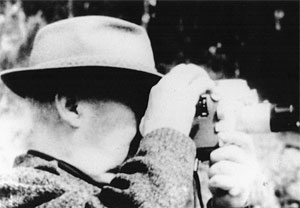 |
||||||
|
HI RES PRESS PHOTOS
ALL PRESS
SF Chronicle Datebook, March, 2024 Local News Matters, March 2024 Local News Matters, November, 2022 The New York Times, March, 2022 San Francisco Chronicle, June 2012 La vida nos estremece October 2011.pdf The Village Voice, October 2010 This Week in New York blog, October 2010 Tribeca Film Institute blog, October 2010 Senses of Cinema, Issue 53, January 2010 San Francisco Chronicle, October 2009 San Francisco Bay Guardian, November 2005 San Francisco Chronicle, November 2005 San Francisco Weekly, November 2005 San Francisco Examiner, October 2005 Scene 4 Magazine, October 2005 San Francisco Bay Guardian, March 2005 Contra Costa Times, April 2004 San Francisco Bay Guardian, November 2002 Vogues Hommes International, Spring/Summer 2002 (pdf) Miami New Times Review & Interview 2001 San Francisco Chronicle Review, 2001 San Francisco Examiner Review, 2001 San Francisco Bay Guardian Review, 2001 San Francisco Chronicle Profile, 2001 Movie Magazine International Review, 2001 The Stranger (Seattle) Review, 2001 San Francisco Weekly cover story, 2000 New York Times Profile, August 2000
By Mick LaSalle, Chronicle Movie Critic FIVE FILMS BY JAY ROSENBLATT: Short films. Directed by Jay Rosenblatt. (Not rated. 80 minutes. At the Roxie Cinema, the Rafael and the Fine Arts.) The viewers' eyes go immediately to the pretty little girl at the center of the frame. Little notice is taken of the fatherly figure snuggling with her, whose back is to the audience. Then he turns his smiling face . . . and just as we're about to smile, too, we see it's Adolf Hitler. Thus begins "Human Remains," one of the shorts in "Five Films by Jay Rosenblatt." It's a powerful collection. Using mostly stock and archival footage, Rosenblatt has pieced together precious miniatures that, like the best poetry, pack an outsized wallop. HUMANE, ANALYTICAL The overriding mark of these films, for all their proficiency and intellectual penetration, is compassion -- an openheartedness that can't be learned or faked. Rosenblatt has the humanity of a Lubitsch or a Monta Bell combined with the analytical sensibility of a Bergman. His films are not merely good. Rosenblatt is seriously gifted, a significant artist. "Human Remains," the longest short, deals with five 20th century demons in succession -- Hitler, Mussolini, Stalin, Franco and Mao. As footage of each despot is shown, a first-person voice-over tells of each man's idiosyncrasies. In some cases, the details are humanizing: Hitler worried about his weight. Mussolini slept seven hours a night and fancied himself a ladies' man. Other details are simply peculiar: Mao never brushed his teeth. Franco, a hunter, shot more than 80,000 partridges in one year. Stalin was such a monster that even Rosenblatt is hard pressed to find a human-sounding tidbit. It does come as a surprise, though, to hear that Stalin was only 5 feet 4. The point of "Human Remains" is not to create sympathy for the devil but to show that these monsters were people, too, a truth that's eerie. In "The Smell of Burning Ants," Rosenblatt combines early '60s educational footage about bullies with a sensitive narration about how boys are systematically desensitized -- raised on concrete, taught to victimize weaker kids and brought up by fathers who are angry and don't even know why. The narration is a tightrope. One expects at any moment it will get too pat, sanctimonious or personal. Rather it becomes profound. A boy is "brought up not be a girl," says Rosenblatt. "Later he will be with women and will feel what he has been robbed of." "The King of the Jews" is Rosenblatt's most personal film, his remembrance of a Jewish boyhood lived in fear of Christianity and anti-Semitism. The turning point comes when, as a child, he sees a screening of the Nicholas Ray classic "King of Kings" (1961) and discovers that Jesus was Jewish. From there, the short becomes a reflection on anti-Semitism and cruelty of all kinds, with silent-film re-creations of the crucifixion interspersed with shots of the Holocaust and of people reacting to Kennedy's assassination. OLD CAUTIONARY FILMS "Restricted" is a very short piece that kaleidoscopically weaves old cautionary films to make a comment on the culture that produced them. "Short of Breath" uses similar material for a heartfelt reflection on marriage, depression and childhood. Yet explanations pale. Any critic can say what Rosenblatt's films mean, but they mean more than any critic can pinpoint. To talk about these films is to talk about poetry, and poems mean more than their meanings. |
||
